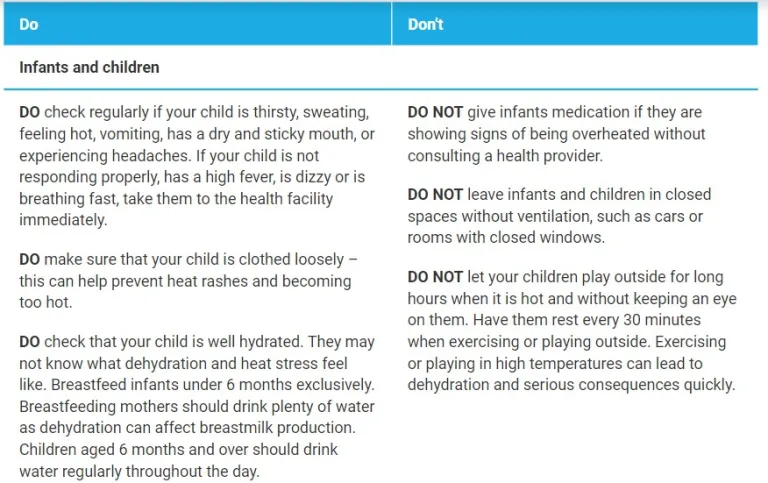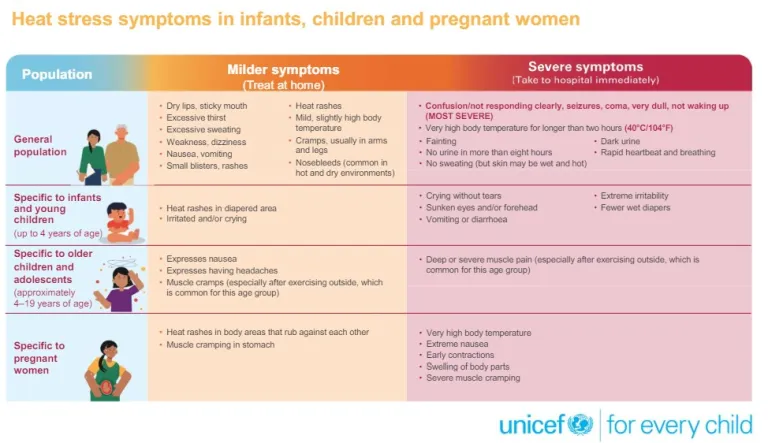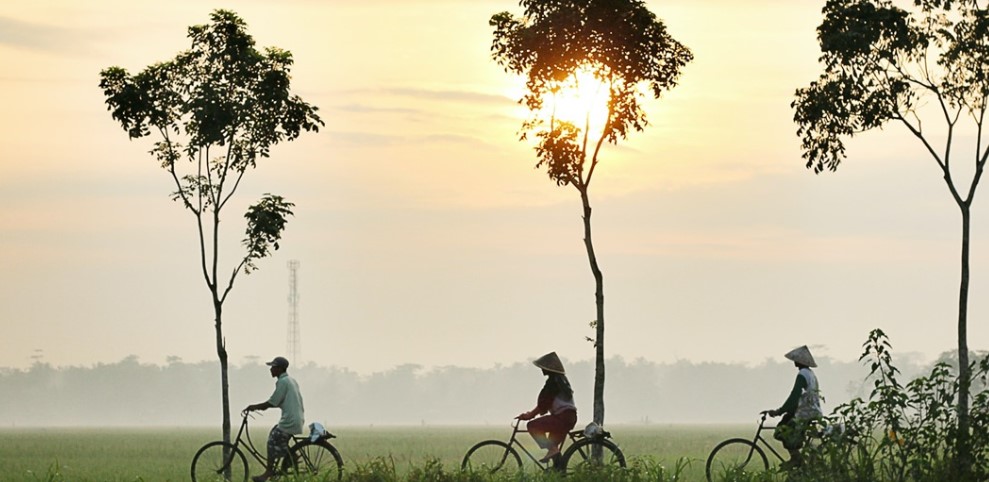KATHMANDU: Global temperatures and the frequency and intensity of heat waves will rise in the 21st century as a result of climate change.
Extended periods of high day and nighttime temperatures create cumulative physiological stress on the human body which exacerbates the top causes of death globally, including respiratory and cardiovascular diseases, diabetes mellitus and renal disease.
Heatwaves can acutely impact large populations for short periods of time, often trigger public health emergencies, and result in excess mortality, and cascading socioeconomic impacts (e.g. lost work capacity and labor productivity).
They can also cause loss of health service delivery capacity, where power-shortages which often accompany heat waves disrupt health facilities, transport, and water infrastructure.
Awareness remains insufficient of the health risks posed by heatwaves and prolonged exposure to increased temperatures.
Health professionals must adjust their planning and interventions to account for increasing temperatures and heatwaves.
Practical, feasible, and often low-cost interventions at the individual, community, organizational, governmental and societal levels, can save lives
The Meteorological Forecasting Division of the Department of Hydrology and Meteorology has said that both minimum and maximum temperatures in most parts of the country have increased in the past few days resulting in hotter days.
The Department has stated that excessive heat is likely for some days in the Tarai area and has urged all to apply precautions or make needed preparations.
Key facts
- Population exposure to heat is increasing due to climate change, and this trend will continue.
- Globally, extreme temperature events are observed to be increasing in their frequency, duration, and magnitude.
- Between 2000 and 2016, the number of people exposed to heat waves increased by around 125 million.
- In 2015 alone, 175 million additional people were exposed to heat waves compared to average years.
- Single events can last weeks, occur consecutively, and result in significant excess mortality.
- In 2003, 70 000 people in Europe died as a result of the June-August event, in 2010, 56 000 excess deaths occurred during a 44-day heatwave in the Russian Federation.
- Exposure to excessive heat has wide ranging physiological impacts for all humans, often amplifying existing conditions and resulting in premature death and disability.
- The negative health impacts of heat are predictable and largely preventable with specific public health actions. WHO has issued public health guidance for the general public and medical professionals on coping with extreme heat.
Who is affected?
Rising global ambient temperatures affect all populations.
However, some populations are more exposed to, or more physiologically or socio-economically vulnerable to physiological stress, exacerbated illness, and an increased risk of death from exposure to excess heat.
These include the elderly, infants and children, pregnant women, outdoor and manual workers, athletes, and the poor. Gender can play an important role in determining heat exposure
How does heat impact health?
Heat gain in the human body can be caused by a combination of external heat from the environment and internal body heat generated from metabolic processes.
Rapid rises in heat gain due to exposure to hotter than average conditions compromises the body’s ability to regulate temperature and can result in a cascade of illnesses, including heat cramps, heat exhaustion, heatstroke, and hyperthermia.
Deaths and hospitalizations from heat can occur extremely rapidly (same day), or have a lagged effect (several days later) and result in accelerating death or illness in the already frail, particularly observed in the first days of heatwaves.
Even small differences from seasonal average temperatures are associated with increased illness and death.
Temperature extremes can also worsen chronic conditions, including cardiovascular, respiratory, and cerebrovascular disease and diabetes-related conditions.
Heat also has important indirect health effects.
Heat conditions can alter human behavior, the transmission of diseases, health service delivery, air quality, and critical social infrastructure such as energy, transport, and water.
The scale and nature of the health impacts of heat depend on the timing, intensity and duration of a temperature event, the level of acclimatization, and the adaptability of the local population, infrastructure and institutions to the prevailing climate.
The precise threshold at which temperature represents a hazardous condition varies by region, other factors such as humidity and wind, local levels of human acclimatization and preparedness for heat conditions.
What actions should the public take?



Keep your home cool
- Aim to keep your living space cool.
- Check the room temperature between 08:00 and 10:00, at 13:00 and at night after 22:00.
- Ideally, the room temperature should be kept below 32 °C during the day and 24 °C during the night. This is especially important for infants or people who are over 60 years of age or have chronic health conditions.
- Use the night air to cool down your home.
- Open all windows and shutters during the night and the early morning, when the outside temperature is lower (if safe to do so).
- Reduce the heat load inside the apartment or house.
- Close windows and shutters (if available) especially those facing the sun during the day.
- Turn off artificial lighting and as many electrical devices as possible.
- Hang shades, draperies, awnings or louvers on windows that receive morning or afternoon sun.
- Hang wet towels to cool down the room air.
- Note that the humidity of the air increases at the same time.
- If your residence is air conditioned, close the doors and windows and conserve electricity not needed to keep you cool, to ensure that power remains available and reduce the chance of a community-wide outage.
- Electric fans may provide relief, but when the temperature is above 35 °C, may not prevent heat-related illness.
- It is important to drink fluids.
Keep out of the heat
- Move to the coolest room in the home, especially at night.
- If it is not possible to keep your home cool, spend 2–3 hours of the day in a cool place (such as an airconditioned public building).
- Avoid going outside during the hottest time of the day.
- Avoid strenuous physical activity if you can. If you must do strenuous activity, do it during the coolest part of the day, which is usually in the morning between 4:00 and 7:00.
- Stay in the shade.
- Do not leave children or animals in parked vehicles.
Keep the body cool and hydrated
- Take cool showers or baths. Alternatives include cold packs and wraps, towels, sponging, foot baths, etc.
- Wear light, loose-fitting clothes of natural materials. If you go outside, wear a wide-brimmed hat or cap and sunglasses.
- Use light bed linen and sheets, and no cushions, to avoid heat accumulation.
- Drink regularly, but avoid alcohol and too much caffeine and sugar.
- Eat small meals and eat more often. Avoid foods that are high in protein
Help others
- Plan to check on family, friends, and neighbours who spend much of their time alone. Vulnerable people might need assistance on hot days.
- Discuss extreme heat-waves with your family. Everyone should know what to do in the places where they spend time.
- If anyone you know is at risk, help him or her to get advice and support. Elderly or sick people living alone should be visited at least daily.
- If a person is taking medication, ask the treating doctor how it can influence thermoregulation and the fluid balance.
- Get training. Take a first-aid course to learn how to treat heat emergencies and other emergencies. Everyone should know how to respond.
If you have health problems
- Keep medicines below 25 °C or in the refrigerator (read the storage instructions on the packaging).
- Seek medical advice if you are suffering from a chronic medical condition or taking multiple medications.
If you or others feel unwell
- Try to get help if you feel dizzy, weak, anxious or have intense thirst and headache; move to a cool place as soon as possible and measure your body temperature.
- Drink some water or fruit juice to rehydrate.
- Rest immediately in a cool place if you have painful muscular spasms (particularly in the legs, arms or abdomen, in many cases after sustained exercise during very hot weather), and drink oral rehydration solutions containing electrolytes.
- Medical attention is needed if heat cramps last more than one hour.
- Consult your doctor if you feel unusual symptoms or if symptoms persist. If one of your family members or people you assist presents hot dry skin and delirium, convulsions and/or unconsciousness, call a doctor/ambulance immediately. While waiting for help, move the person to a cool place, put him or her in a horizontal position and elevate legs and hips, remove clothing and initiate external cooling, for example, by placing cold packs on the neck, axillae and groin, fanning continuously and spraying the skin with water at 25–30 °C. Measure the body temperature. Do not give acetylsalicylic acid or paracetamol. Position an unconscious person on his or her side.









Comment